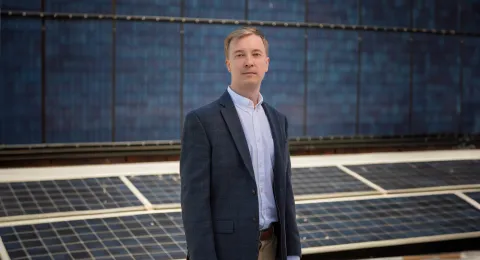Research.com annually releases a ranking of the world’s top rising stars of science, including leading scholars from all major scientific fields. In the latest ranking, Lappeenranta-based researcher Dmitrii Bogdanov placed second among his peers in Finland. Globally, he came in 763rd.
The ranking is based on a meticulous examination of 166 880 scientists on Google Scholar and Microsoft Academic Graph. The criteria for inclusion in the ranking comprise the productivity and citation impact of the publications (H-index), the proportion of contributions made within the given discipline, and awards and achievements of the scientists.
At LUT, Bogdanov is exploring the transition towards a fully sustainable energy system, considering all aspects of sustainability.
“The majority of my research consists of the development of optimal transition pathways. We’re studying how countries could reach their targets in a cost-optimal way while avoiding investments in inefficient technologies and using scarce resources to their maximum impact,” says Bogdanov.
The Curious People newsletter shares our solutions for helping build resilient communities, industry, and businesses while promoting the energy transition and the regenerative use of natural resources.
Groundbreaking research needs creativity and courage
According to Bogdanov, researchers should always stay open to and curious about research by scientists in any field.
”No task is impossible. If experience and deep knowledge of a specific topic don’t provide a solution, creativity and courage will. New approaches could be adopted from completely different projects.”
Curiosity and courage are what LUT University is all about. Jari Hämäläinen, LUT’s vice rector for research and innovation, deems that solving complex problems requires collaboration between fields of science.
“We keep track of global changes and want to be involved in major societal transitions. These issues are often complex and involve solving more than one technological problem. We need experts from many fields to contribute,” Hämäläinen says.
Currently, Bogdanov is on research exchange at Stanford University, where he is further analysing how the industrial and transport use of carbon neutral and sustainable fuels, such as biofuels and e-fuels, impacts the energy system.
More information:

Dmitrii Bogdanov









